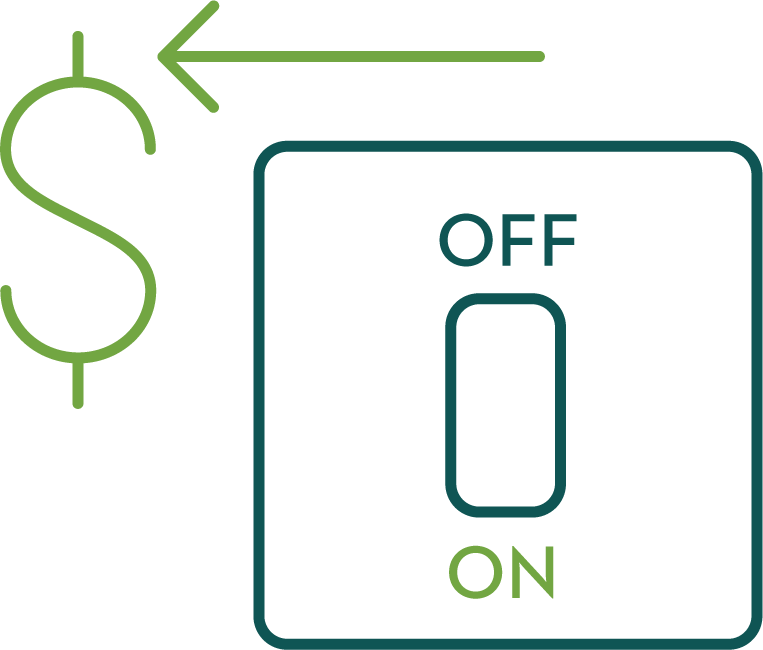In mid-November 2022, the Federal Government revealed draft legislation to enact changes that were announced in the October budget to align the tax treatment of on- and off-market share buybacks.
In particular, the Government is looking to close a loophole that allows companies to buy back shares using a franked dividend as part of the purchase price and therefore reduce capital gains tax paid by shareholders. The Government estimates that changes to align the tax treatment of off-market buybacks will recoup A$550 million in tax receipts over four years1.
Since the announcement at budget time, there has been much discussion about risk to further changes to franking credits attached to dividends. Any tinkering to the 35-year dividend imputation system in Australia can raise the heart rate of investors who rely on franked dividends.
While franking is a key component of returns for our Income-focused strategies, off-market buybacks are not. We feel that the changes announced should have only a minor impact and may even be a positive.
In the following article, we answer some of the key questions around these proposed changes.

What is a share buyback and why do it?
Firstly, a buyback is simply a capital management decision by a public company to reduce its capital by buying back shares from shareholders and cancelling the shares. The benefit for shareholders is that it is accretive in the sense that it distributes a company’s profits to a smaller number of shares on issue resulting in higher dividends.

What is the key difference between an on- and off-market buyback?
An on-market buyback is usually conducted through an exchange like the ASX where a company will buy back shares on the market and then cancel those shares and reduce the company's capital base.
An off-market, as the name suggests, is conducted away from an exchange and can be a way for companies to selectively buy back shares and reduce capital. Typically, in an off-market buyback, the purchase price is at a discount to the share price and difference is made up by use of a franked dividend.

What are the current tax implications of each method?
From a tax perspective, a share bought back on market is subject to capital gains tax (CGT). For an off-market buyback, the CGT component is lower because of the lower purchase price, while the income tax from the distribution component is offset by franking credits attached to the distribution.

How common is the usage of off-market buybacks?
Several large companies have utilised off-market buybacks to reduce capital base and distribute franking credits in a tax efficient manner. For example, BHP Group, Rio Tinto, Commonwealth Bank of Australia, Westpac Banking Corporation, Woolworths Group, JB Hi-Fi, Metcash and Caltex have undertaken off-market buybacks over recent years2.
While larger companies have utilised off-market buybacks to distribute franking credits, the vast majority of dividends and franking credits continue to be distributed to shareholders as franked dividends.
In mid-November 2022, the Federal Government revealed draft legislation to enact changes that were announced in the October budget to align the tax treatment of on- and off-market share buybacks.
In particular, the Government is looking to close a loophole that allows companies to buy back shares using a franked dividend as part of the purchase price and therefore reduce capital gains tax paid by shareholders. The Government estimates that changes to align the tax treatment of off-market buybacks will recoup A$550 million in tax receipts over four years1.
Since the announcement at budget time, there has been much discussion about risk to further changes to franking credits attached to dividends. Any tinkering to the 35-year dividend imputation system in Australia can raise the heart rate of investors who rely on franked dividends.
While franking is a key component of returns for our Income-focused strategies, off-market buybacks are not. We feel that the changes announced should have only a minor impact and may even be a positive.
In the following article, we answer some of the key questions around these proposed changes.

What is a share buyback and why do it?
Firstly, a buyback is simply a capital management decision by a public company to reduce its capital by buying back shares from shareholders and cancelling the shares. The benefit for shareholders is that it is accretive in the sense that it distributes a company’s profits to a smaller number of shares on issue resulting in higher dividends.

What is the key difference between an on- and off-market buyback?
An on-market buyback is usually conducted through an exchange like the ASX where a company will buy back shares on the market and then cancel those shares and reduce the company's capital base.
An off-market, as the name suggests, is conducted away from an exchange and can be a way for companies to selectively buy back shares and reduce capital. Typically, in an off-market buyback, the purchase price is at a discount to the share price and difference is made up by use of a franked dividend.

What are the current tax implications of each method?
From a tax perspective, a share bought back on market is subject to capital gains tax (CGT). For an off-market buyback, the CGT component is lower because of the lower purchase price, while the income tax from the distribution component is offset by franking credits attached to the distribution.

How common is the usage of off-market buybacks?
Several large companies have utilised off-market buybacks to reduce capital base and distribute franking credits in a tax efficient manner. For example, BHP Group, Rio Tinto, Commonwealth Bank of Australia, Westpac Banking Corporation, Woolworths Group, JB Hi-Fi, Metcash and Caltex have undertaken off-market buybacks over recent years2.
While larger companies have utilised off-market buybacks to distribute franking credits, the vast majority of dividends and franking credits continue to be distributed to shareholders as franked dividends.
While franking is a key component of returns for our Income-focused strategies, off-market buybacks are not. We feel that the changes announced should have only a minor impact and may even be a positive.

What is the Government actually trying to change?
The changes announced remove the differences between on- and off-market buybacks in terms of the tax treatment. Off-market buybacks will no longer be able to distribute a franked dividend as part of the compensation to shareholders and the CGT liability will likely be similar between on- and off-market buybacks. Hence the Government forecast to recoup a significant level of forgone tax revenue from the changes.

Why are some investors are so concerned, while we are not?
Some income focused funds aim to generate income through dividend stripping around franked dividend paying events. Off-market buybacks are an event where these funds undertake trading. However, high turnover from one event to the next is just turning capital into income.
We believe that true income can only be derived from owning an income stream on a long-term basis, and that turning capital into income harms the long-term income growth that is needed to fund a ‘sufficient income for life’.
On the other hand, our Martin Currie Australia Income strategies fully value franking credits on a buy and hold basis and take a low turnover approach to owning high quality, dividend paying companies. While we have participated in off-market buybacks at times, we have found that they have not had a significant contribution to our after-tax returns3.

What is the positive for low tax paying investors such as retirees and charities?
An important point to realise is that off-market share buybacks had traditionally been priced at a 10-14% discount to the prevailing share price4. Low tax payers participating in the buyback incur a capital loss (albeit offset by the benefit of the franked dividend) while the cost to high tax-payers was offset by the earnings per share (EPS) value accretion of the reduced capital base.
If companies change their capital return strategy to distribute accumulated franking credits through other ways, such as larger regular or special franked dividends, then investors can receive the full value of the dividend and franking without any associated capital losses. This helps improves after-tax returns for low taxpayers.
While we have no insight into further government policy changes around the imputation system, we do believe that franked dividends are here to stay. So too are companies accumulating profits and distributing those profits to shareholders as franked dividends. We estimate that in total, the top 200 ASX companies have accumulated a circa A$52 billion franking account balance that can be distributed to shareholders5.
This is a positive for shareholders seeking to maximise dividend income, which is what our Income strategies such as the Equity Income and Ethical Income aim to do.
In summary
So, while the changes announced in October to remove the special tax treatment of off-market share buybacks have generated much debate, we don't see any material impact to franking from these changes, and arguably, this could drive a positive change in how companies distribute franking credits to shareholders.
Our Income strategies are focused on high quality securities that pay higher income, provide inflation protection, and have lower volatility than the broader share market. We believe that these companies can sustainably withstand any changes in tax conditions and retain their franked income appeal.
Click to display all sources >>
1 Source: Commonwealth of Australia; October 2022. “Budget October 2022-23, Budget Measures, BUDGET PAPER NO. 2", page 13. Available from https://budget.gov.au/2022-23-october/content/bp2/download/bp2_2022-23.pdf
2 The information provided should not be considered a recommendation to purchase or sell any particular security. It should not be assumed that any of the security transactions discussed here were, or will prove to be, profitable.
3 Source: Martin Currie Australia, FactSet; as of 31 December 2022. Data calculated for a representative Martin Currie Australia Equity Income account in A$ gross of management fee. Past performance is not guide to future returns.
4 Source: Martin Currie Australia, FactSet; as of 31 December 2022
5 Source: Martin Currie Australia, Macquarie Research, FactSet; as of 31 December 2022
Important information
This information is issued and approved by Martin Currie Investment Management Limited (‘MCIM’), authorised and regulated by the Financial Conduct Authority. It does not constitute investment advice. Market and currency movements may cause the capital value of shares, and the income from them, to fall as well as rise and you may get back less than you invested.
The information contained in this document has been compiled with considerable care to ensure its accuracy. However, no representation or warranty, express or implied, is made to its accuracy or completeness. Martin Currie has procured any research or analysis contained in this document for its own use. It is provided to you only incidentally and any opinions expressed are subject to change without notice.
The document does not form the basis of, nor should it be relied upon in connection with, any subsequent contract or agreement. It does not constitute, and may not be used for the purpose of, an offer or invitation to subscribe for or otherwise acquire shares in any of the products mentioned.
Past performance is not a guide to future returns.
The views expressed are opinions of the portfolio managers as of the date of this document and are subject to change based on market and other conditions and may differ from other portfolio managers or of the firm as a whole. These opinions are not intended to be a forecast of future events, research, a guarantee of future results or investment advice.
Some of the information provided in this document has been compiled using data from a representative account. This account has been chosen on the basis it is an existing account managed by Martin Currie, within the strategy referred to in this document. Representative accounts for each strategy have been chosen on the basis that they are the longest running account for the strategy. This data has been provided as an illustration only, the figures should not be relied upon as an indication of future performance. The data provided for this account may be different to other accounts following the same strategy. The information should not be considered as comprehensive and additional information and disclosure should be sought.
The information provided should not be considered a recommendation to purchase or sell any particular strategy/ fund/security. It should not be assumed that any of the security transactions discussed here were or will prove to be profitable.
Risk warnings - Investors should also be aware of the following risk factors which may be applicable to the strategy shown in this document.
- Investing in foreign markets introduces a risk where adverse movements in currency exchange rates could result in a decrease in the value of your investment.
- This strategy may hold a limited number of investments. If one of these investments falls in value this can have a greater impact on the strategy’s value than if it held a larger number of investments.
- Smaller companies may be riskier and their shares may be less liquid than larger companies, meaning that their share price may be more volatile.
- Income strategy charges are deducted from capital. Because of this, the level of income may be higher but the growth potential of the capital value of the investment may be reduced.
Click to display all sources >>
1 Source: Commonwealth of Australia; October 2022. “Budget October 2022-23, Budget Measures, BUDGET PAPER NO. 2", page 13. Available from https://budget.gov.au/2022-23-october/content/bp2/download/bp2_2022-23.pdf
2 The information provided should not be considered a recommendation to purchase or sell any particular security. It should not be assumed that any of the security transactions discussed here were, or will prove to be, profitable.
3 Source: Martin Currie Australia, FactSet; as of 31 December 2022. Data calculated for a representative Martin Currie Australia Equity Income account in A$ gross of management fee. Past performance is not guide to future returns.
4 Source: Martin Currie Australia, FactSet; as of 31 December 2022
5 Source: Martin Currie Australia, Macquarie Research, FactSet; as of 31 December 2022
Important information
This information is issued and approved by Martin Currie Investment Management Limited (‘MCIM’), authorised and regulated by the Financial Conduct Authority. It does not constitute investment advice. Market and currency movements may cause the capital value of shares, and the income from them, to fall as well as rise and you may get back less than you invested.
The information contained in this document has been compiled with considerable care to ensure its accuracy. However, no representation or warranty, express or implied, is made to its accuracy or completeness. Martin Currie has procured any research or analysis contained in this document for its own use. It is provided to you only incidentally and any opinions expressed are subject to change without notice.
The document does not form the basis of, nor should it be relied upon in connection with, any subsequent contract or agreement. It does not constitute, and may not be used for the purpose of, an offer or invitation to subscribe for or otherwise acquire shares in any of the products mentioned.
Past performance is not a guide to future returns.
The views expressed are opinions of the portfolio managers as of the date of this document and are subject to change based on market and other conditions and may differ from other portfolio managers or of the firm as a whole. These opinions are not intended to be a forecast of future events, research, a guarantee of future results or investment advice.
Some of the information provided in this document has been compiled using data from a representative account. This account has been chosen on the basis it is an existing account managed by Martin Currie, within the strategy referred to in this document. Representative accounts for each strategy have been chosen on the basis that they are the longest running account for the strategy. This data has been provided as an illustration only, the figures should not be relied upon as an indication of future performance. The data provided for this account may be different to other accounts following the same strategy. The information should not be considered as comprehensive and additional information and disclosure should be sought.
The information provided should not be considered a recommendation to purchase or sell any particular strategy/ fund/security. It should not be assumed that any of the security transactions discussed here were or will prove to be profitable.
Risk warnings - Investors should also be aware of the following risk factors which may be applicable to the strategy shown in this document.
- Investing in foreign markets introduces a risk where adverse movements in currency exchange rates could result in a decrease in the value of your investment.
- This strategy may hold a limited number of investments. If one of these investments falls in value this can have a greater impact on the strategy’s value than if it held a larger number of investments.
- Smaller companies may be riskier and their shares may be less liquid than larger companies, meaning that their share price may be more volatile.
- Income strategy charges are deducted from capital. Because of this, the level of income may be higher but the growth potential of the capital value of the investment may be reduced.
